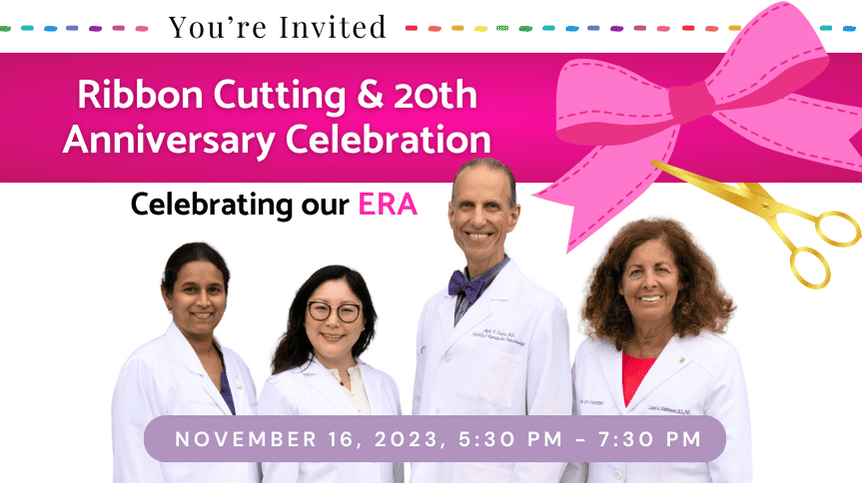 Getting pregnant and starting a family is one of the most exciting times during parents’ lives. The preparation to welcome a new life into the home is cause for celebration for the entire extended family. Still, many patients ask, “what are the do’s and don’ts during pregnancy?”
Getting pregnant and starting a family is one of the most exciting times during parents’ lives. The preparation to welcome a new life into the home is cause for celebration for the entire extended family. Still, many patients ask, “what are the do’s and don’ts during pregnancy?”
This information may, at times, be confusing and even contradictory for an expecting mother, and can end up becoming a source of stress rather than a boon of good intention and wisdom.
Below we’ll set the record straight on what you can or cannot do during your pregnancy, and the foods and supplements that will help you, and those that will not.
Prenatal Vitamins
We recommend that pregnant women consume the following vitamins and minerals daily, either through diet or supplements:
- Folic acid 400—800 micrograms (during the full first trimester)
- Iron 30 mg (or be tested for anemia)
- Vitamin D 600 international units
- Calcium 1,000 mg
Although there is no fixed formula for prenatal vitamins, they can be taken safely by an expecting mother to make sure she is getting the proper intake of important vitamins and minerals during pregnancy. However, prenatal vitamins may not be necessary for all pregnant women, particularly those who eat a healthy, well-balanced diet.
Nutrition and Weight Gain
We advise pregnant women to eat a nutritious, well-rounded diet with a small increase in a caloric intake by around 350-450 calories/day). However, women who have a higher prepregnancy body-mass index (BMI) do not require the same amount of increased weight as those with average or low BMI.
Alcohol
 Recent research studies have indicated that consuming small amounts of alcohol during pregnancy (fewer than nine drinks per week) does not harm the fetus. However, the precise threshold between safe and unsafe is not known. Therefore, we recommend that pregnant woman avoid all alcohol throughout their pregnancy.
Recent research studies have indicated that consuming small amounts of alcohol during pregnancy (fewer than nine drinks per week) does not harm the fetus. However, the precise threshold between safe and unsafe is not known. Therefore, we recommend that pregnant woman avoid all alcohol throughout their pregnancy.
Artificial Sweeteners
Artificial sweeteners are generally safe for consumption during pregnancy. However, research has shown conflicting data regarding saccharin. We consider low, regular consumption as safe during pregnancy.
Caffeine
Low-to-medium caffeine consumption during pregnancy has not been linked with any negative effects. You may drink coffee or tea, but we recommend not consuming more than 300 mg/day (two 8-ounce cups of coffee contain roughly 260 mg of caffeine). An 8-ounce cup of tea or 12-ounce soda contains about 50 mg of caffeine). However, precise measures differ depending on the beverage consumed.
Fish Consumption
Pregnant women should aim to consume two to three servings per week of fish with a high DHA omega-3 content and low mercury composition. If you are unable to attain the recommended quantity of fish, DHA or omega-3 supplements are safe to use but keep in mind there is no evidence that they provide any benefit.
We recommend that you abstain from raw or undercooked fish. However, consuming sushi in a
clean and reputable establishment poses little risk to your pregnancy.
Other Foods to Avoid
You should avoid raw and undercooked meat and wash vegetables and fruit before eating them. Pregnant women should avoid unpasteurized dairy products.
Consuming deli meats that have not been reheated can raise the risk of listeria, but the exact risk is unknown. You should refrain from foods that have been recalled for possible listeria contamination.
Smoking
Women should not smoke cigarettes during pregnancy. If you cannot quit entirely, you should try to cut down as much as possible. Nicotine replacement (using patches or gum) is an effective part of a non-smoking strategy, and switching to e-cigarettes or vaping can reduce the negative effects of tobacco smoking.
Marijuana smoking has not been linked to adverse effects during pregnancy. However, we do not recommend marijuana use during pregnancy as research data regarding long-term neurodevelopmental outcomes are lacking.
Exercise, Swimming, and Injury
 We encourage pregnant women to exercise regularly. Bed rest or restricting your activities has not been shown to lead to any benefit for pregnant women unless expressly advised by your physician.
We encourage pregnant women to exercise regularly. Bed rest or restricting your activities has not been shown to lead to any benefit for pregnant women unless expressly advised by your physician.
The research on hot tub use during pregnancy is limited, but we recommend that you refrain from using a hot tub during your first trimester. You are encouraged to swim as often as you like.
When in a motor vehicle, you should always wear seat-belts and should not disable your airbag.
Oral Health
You can continue any oral health and dental appointments or procedures during your pregnancy.
Other Substances
Topical insect repellants (including DEFT) can be used during pregnancy and are especially encouraged in areas with a high risk of insect-borne illnesses.
Hair dyes are considered safe to use during pregnancy as there is little systemic absorption.
Travel
Air travel is considered safe in pregnancy. When planning your trip, you should get acquainted with any infection exposure risks and the available medical care at each destination. There is no exact gestational period where you must stop traveling. However, you should weigh the benefits of your trip with the potential risk of complications at your destination.
Sexual Intercourse and Sleeping
Pregnant women at 20 weeks or more who do not exhibit bleeding, placenta previa or ruptured membranes should not have any restrictions regarding sexual intercourse.
There are no official guidelines about when pregnant women should begin sleeping on their side. Comfort should be the guiding factor in determining your sleeping position.






